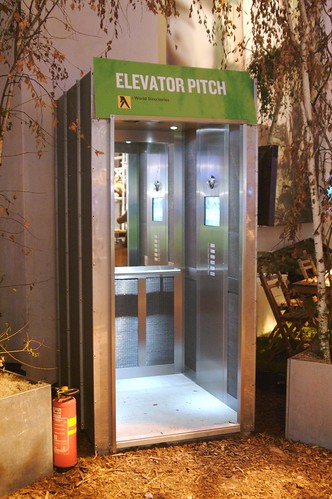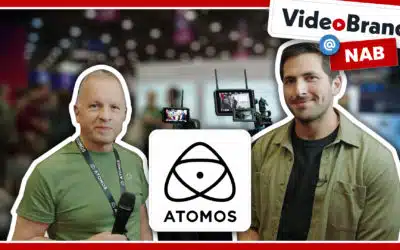Imagine this – you stop by a big studio, maybe to try to get a few minutes with an exec to pitch your next idea. As you get back on the elevator to leave (with the no scheduled meeting), the door opens to reveal the Head of the Studio already riding down. “Great Zeus, this is it, this is where my career starts.”
So you get on, and before the doors can even close you go into your well rehearsed 30-second elevator pitch.
The Studio Head grins and nods to be polite, tells you to talk to his secretary (whom you just did), and leaves. No six figure deal, no let’s have lunch. Why? Because you were the same as every other schmuck that pitches to him 20 times a day.
We’re required to have an elevator pitch at Director’s Prep. We’re also supposed to have a 5-minute pitch, which I think is absolutely ridiculous. 5 minutes for a 7 minute film? You can see the teachers glaze over as they sit through it.
The elevator pitch is a little more reasonable, but I’m glad to finally see someone take a stand against it, namely Stephanie Palmer, a former Studio Exec and author of Good in a Room. Here’s an excerpt from an interview with her on tompeters.com:
Tom Peters has espoused the elevator pitch as one of the supporting columns of Wow Projects. The goal of the elevator pitch being, if you get into an elevator on the first floor with your boss and you’re trying to sell an idea, you want to sell it by the time you get to the 35th floor. You say the elevator pitch is a myth. Why is that?
SP: I think the term “elevator pitch” incorrectly implies that it’s appropriate to pitch in an elevator. Communicating quickly and concisely is important, but you should never pitch when you don’t have time to continue the conversation. A moment’s access with someone who doesn’t know you is not an opportunity. Your first interaction with someone sets the stage for the relationship to come. You shouldn’t start pitching your idea to someone before they know who you are enough to care about what you’re saying in the first place.
High-level buyers are pitched all the time. They know when they are hearing something that’s been repeated to dozens of other people. If you haven’t taken the time to build rapport and customize your pitch to that person’s specific needs, it’s a sign that you’re an amateur. Every buyer is unique, and your pitch should reflect that.
I think there’s three things to take here:
- Communicate quickly and concisely. I’m a fan of one sentence synopses. I think anything after that and you lose the person. Read Made to Stick (here’s a post on their blog on pitches).
- Use your first interaction to get to know the person. Find out who they are, what they like. The goal is to get to know them as a person, and find similarities between their likes and your project.
- Customize the pitch. If they like cars, heighten the race car subplot of your film. People buy what they like, so customize it and adapt it for their likes. You’ll also come off as more natural and less of an automaton.




